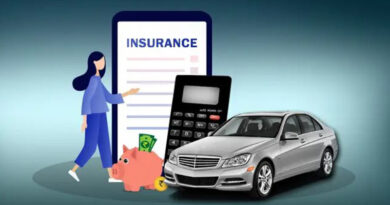How to Respond to Motor Vehicle Accidents in NJ: A Step-by-Step Guide
Motor vehicle accidents are sudden, stressful incidents that can have significant legal, medical, and financial implications. In New Jersey, knowing how to respond to a car accident is not just about managing the immediate aftermath, but it’s also about protecting your rights and interests in the long run. Whether you’re a seasoned driver, a law firm seeking to advise clients, or an insurance company looking to educate policyholders, understanding the step-by-step process is crucial. Here’s what you need to know to handle motor vehicle accidents NJ in the Garden State effectively.
Introduction to the Importance of Knowing How to Respond to Motor Vehicle Accidents
Car accidents are the leading cause of personal injury claims in New Jersey. Understanding what to do after an accident isn’t just good practice—it can make a world of difference in how efficiently and fairly the aftermath is resolved. Whether it’s a minor fender-bender or a more severe collision, being well-prepared can help ensure everyone’s safety and ease the claims process.
The Legal Framework
New Jersey operates under a no-fault insurance system, which means your own insurance company pays for some of your medical expenses and other economic losses, regardless of who is at fault in the accident. This unique legal framework impacts how you handle insurance and legal procedures following a crash.
Step 1: Ensuring Safety and Calling for Help
Your Safety Comes First
After any accident, the primary concern is the well-being of everyone involved. Ensure the safety of all parties by moving to a safe location, if possible, and turning on hazard lights to alert other drivers.
Calling 911
In New Jersey, it’s critical to call 911 immediately after a serious accident to get a police report and medical help. Regardless of the severity, having a record of the incident is invaluable and can later support insurance claims.
Providing Assistance
State law also requires you to provide reasonable assistance to anyone who is injured, including transportation to a hospital if necessary.
Step 2: Documenting the Accident
Taking Photos
Document the scene by taking photos of the vehicles, positions of the vehicles before moving them (if it is safe to do so), and any contributing factors (such as weather or road conditions).
Gathering Witness Information
Collect names and contact information from any witnesses. Their accounts can be crucial in determining fault.
Writing Down Details
Note the time and location of the accident, the direction each vehicle was traveling, and the events that led to the collision.
Step 3: Exchanging Information with the Other Party
What to Exchange
You are required to exchange the following information with the other driver: name, address, phone number, insurance company, policy number, and vehicle registration number.
The Importance of Accuracy
Ensure the information you receive and provide is accurate. Mistakes can complicate insurance claims and legal proceedings.
Staying Calm and Polite
Remain civil and avoid laying blame. Your focus should be on information exchange and ensuring everyone’s well-being.
Step 4: Reporting the Accident
How to Report
All car accidents in NJ must be reported to the police if there are injuries, fatalities, or property damage exceeding $500.
The Police Report
A police report is a key piece of evidence. Request a copy at the scene or from the department as soon as possible.
Notifying Your Insurance Company
Inform your insurance company about the accident promptly, even if you’re not at fault. Delaying notification can lead to complications with your claim.
Step 5: Seeking Medical Attention and Documenting Injuries
Prioritizing Your Health
Even if you feel fine after the accident, you should seek medical attention. Injuries like whiplash or internal bleeding may not be immediately apparent.
Medical Records
Keep all medical records, including reports, bills, and prescriptions, as they are essential for your personal injury claim.
Filing Your No-Fault Claim
Your medical bills should be submitted through your PIP (Personal Injury Protection) coverage directly after the accident.
Step 6: Contacting Your Insurance Company
The Notification Process
When contacting your insurance company, provide all the necessary details about the accident, including the police report number and any medical treatments received.
Understanding Your Coverage
Be familiar with your policy’s coverage limits and exclusions. This will help manage your expectations regarding the settlement of your insurance claim.
Cooperating with Your Insurer
Your insurer will need to investigate the accident. Cooperate by providing any requested documentation or information.
Step 7: Engaging Legal Support if Necessary
When to Get a Lawyer
If you’re facing significant injuries or property damage, it’s wise to consult an attorney. They can guide you through navigating complex laws and handling disputes with insurers or other parties involved.
The Role of Legal Counsel
A lawyer can negotiate on your behalf with insurance companies and provide representation if your case goes to court.
Time Limits
Be aware of the statute of limitations for filing a personal injury lawsuit in New Jersey (usually two years from the date of the accident).
Responding to a motor vehicle accident in New Jersey is a process that begins with ensuring safety and ends with your legal and financial well-being. By following these steps, you protect yourself from the immediate chaos that follows a wreck and set the stage for a smooth resolution of any legal or insurance challenges that may arise.
Additional Tips for Staying Safe on the Road
Defensive Driving
Practice defensive driving techniques to reduce the risk of accidents.
Regular Vehicle Maintenance
Keep your car in good working condition. Regular checks on your vehicle can prevent mechanical failures that lead to accidents.
Familiarize Yourself with NJ Traffic Laws
Knowing the state’s traffic laws can help prevent accidents and ensure you are well-versed in your rights and responsibilities on the road.
Links to Reliable Resources and Services
For more detailed information, consult the New Jersey Driver Manual, local law firms specializing in personal injury, and your insurance company’s website for specific guidance related to motor vehicle accidents and claims. Remember, knowledge is power when it comes to protecting yourself and others on the road.


